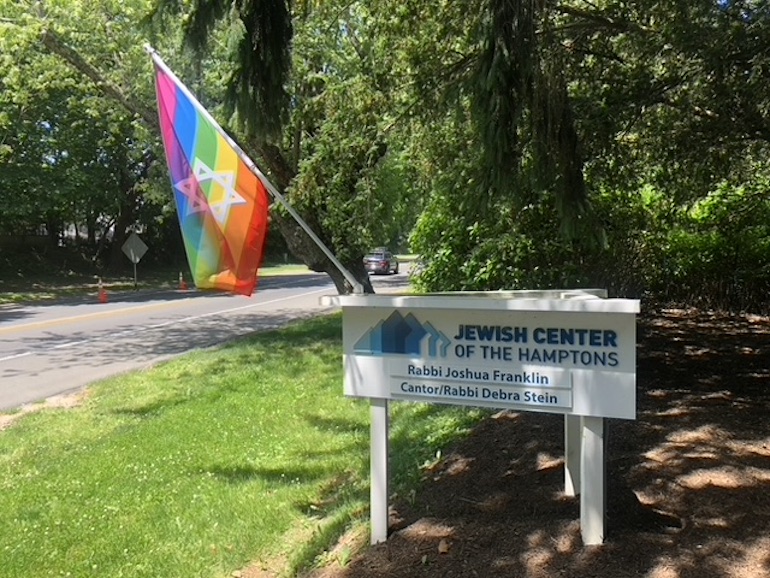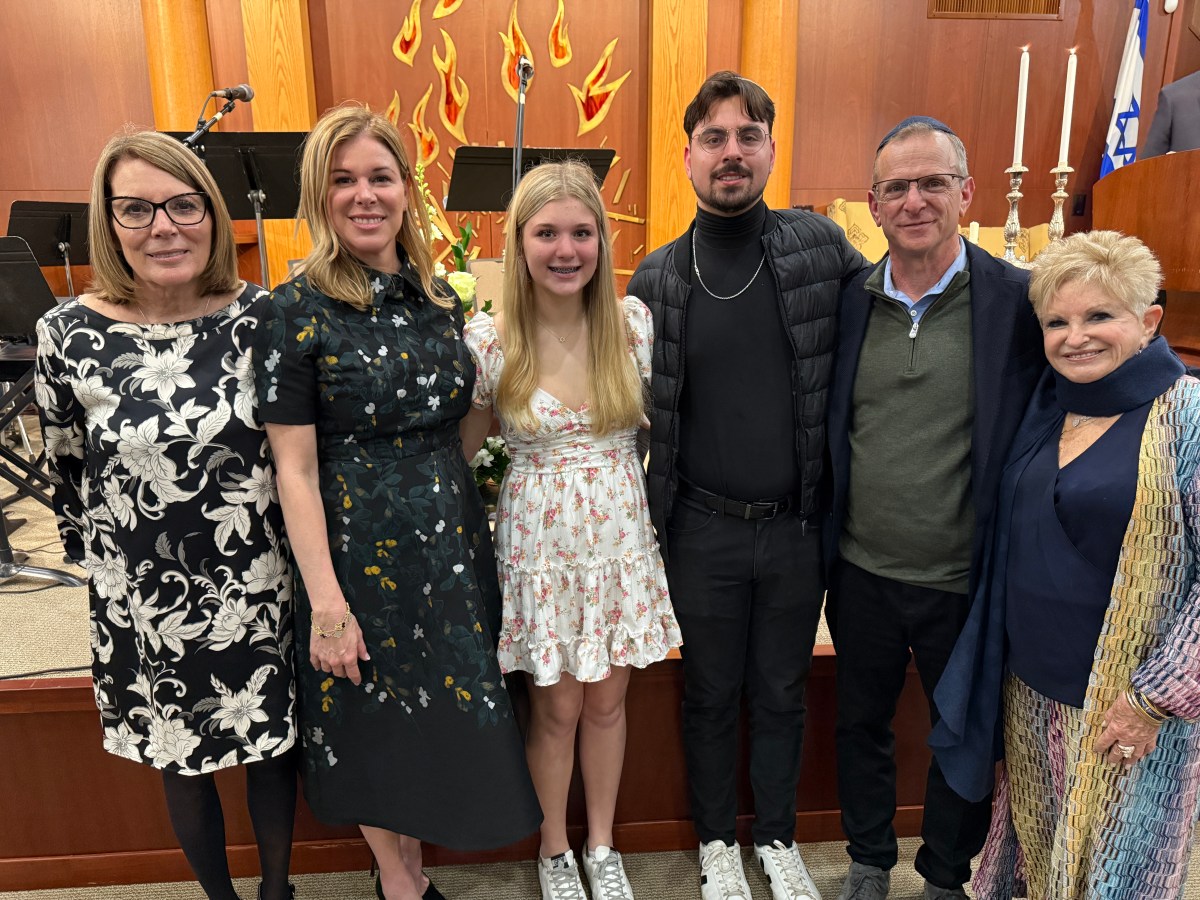Jewish Center of the Hamptons Celebrates Pride Month

June 2020 has been a landmark Pride Month. On Monday, June 15, the Supreme Court ruled 6–3 that Title VII of the Civil Rights Act of 1964, which bars discrimination on the basis of several factors, includes sexual orientation and gender identity. While it’s a tremendous victory for LGBTQ people, there’s something shocking about the fact that it took until 2020 for this decision to be made. But when you look at the institutions that make up this country—including organized religion—it’s clear that there’s much work to be done.
The Jewish Center of the Hamptons (JCOH) has always been a welcoming and inclusive place to practice Judaism, and this month is celebrating Pride in a variety of ways that show that though there is still room for progress, much has indeed been made. The first sign that times are changing for the better? Look out for the rainbow flag waving outside the Center in East Hampton. “We want to make sure everyone who passes by sees that everyone has a home at the Jewish Center, no matter their sexual orientation, especially this month,” says Rabbi Josh Franklin. “That’s important for us. But it’s not just a symbolic show of support. We want to have programming and a message that’s geared towards having people think about what it means to have a Pride Month and a good reminder that the LGBTQ community is very much a part of the Jewish Center. We want to reach them at the intersectionality of their Judaism and the LGBTQ identities,” Franklin says.
This weekend, JCOH will stream a virtual service with guest speakers Rabbi Donald Goor and his husband, Cantor Evan Kent, who live in Israel. Goor and Kent, who moved to Jerusalem to make Aliyah (a term that means “rise up” and is used to describe Jewish people moving to Israel), will speak at the Saturday service, and Kent will perform scenes from his one-man show Shards: Putting the Pieces Together, an autobiographical piece about his family on Sunday, June 28.

Goor and Kent have devoted their lives to Judaism and have fought hard to find acceptance and leadership in the Jewish faith. “Gay people have always been on the margins,” says Kent, “But it’s only been in the past half a century that women have been off the margins and on the page themselves. Religion developed as a patriarchal system and we have a commandment against homosexuality and that somehow rises to the top of the level. For any conservative religion…the commandments aren’t multiple choice. They’re not rank-ordered. If an evangelical or Orthodox Jew is going to be against allowing gay men and women into their synagogue, I would also hope they’re not mixing fabrics in their clothing,” he says. “I think we’ve come so far, just within our lifetime, our own lives as rabbis and cantors.”

Both Goor and Kent have found great acceptance, but have also weathered many unfair storms along the way. Goor lost a job opportunity because he chose to come out when asked in an interview about his sexual orientation. Later, he became the first out Senior Rabbi at Temple Judea in California. His appointment was such an event that the infamous Westboro Baptist Church picketed his installation. Despite this, Goor says, “I think about when we had come to that point where I couldn’t be out to where I could be out to then being married. Change came very quickly and in a very fulfilling way.” Kent, meanwhile, found himself back in the closet at Hebrew Union College after first studying at the much more progressive Manhattan School of Music. The two met as adults at Camp Hess Kramer and embarked on a decades-long love story, culminating in marriage at that very camp.
JCOH Cantor Debra Stein, who knew Kent at HUC, was one of the first 100 women to graduate from the school as a cantor and appreciates the uphill climb Goor, Kent and all their LGBTQ peers endured. “The women used to get the leftovers,” she says. “And it’s amazing how quickly it all changed.”
But how do two men, devoted to their faith, come to terms within themselves with being gay? “For me, like a lot of gay people, it was completely schizophrenic,” Goor says. “At the time that I was at the seminary at HUC, you could not be ordained if you were out and gay. So we lived this schizophrenic life of wanting to fulfill our calling and serve the Jewish people through our work and be who we were at the same time. And I think there was a naiveté that it would work out. And it did, miraculously.”
Kent explores his faith, sexual orientation and family in Shards. “It’s a very emotional show,” he says. “There are some very funny moments and bubbling under the service are questions of family trauma, Israel…I want people to realize that in our individuality is great generality—we all share some of these great experiences.”
So, while there is much change still to come and much progress still to be made, JCOH is hoping to show that it’s possible. As Stein notes: “It takes a little bit of ground breaking to make things happen.”
Visit jcoh.org for more information on the weekend’s events.



